Surprise! Your Mouth Blemishes Might Not Be Cold Sores, After All
Advertisements

If you see some blemishes on your mouth in the mirror, then you’d most likely conclude that you have cold sores. In fact, this is what many people think as soon as they feel that annoying pain from these ugly, nasty sores.
Here’s some possible good news: those mouth blemishes might not be cold sores. Instead, they might be a sign you are suffering from angular cheilitis. What’s the difference between these conditions, though, and what do you need to know in order to stay safe? Keep reading to discover the answers!
What are cold sores?
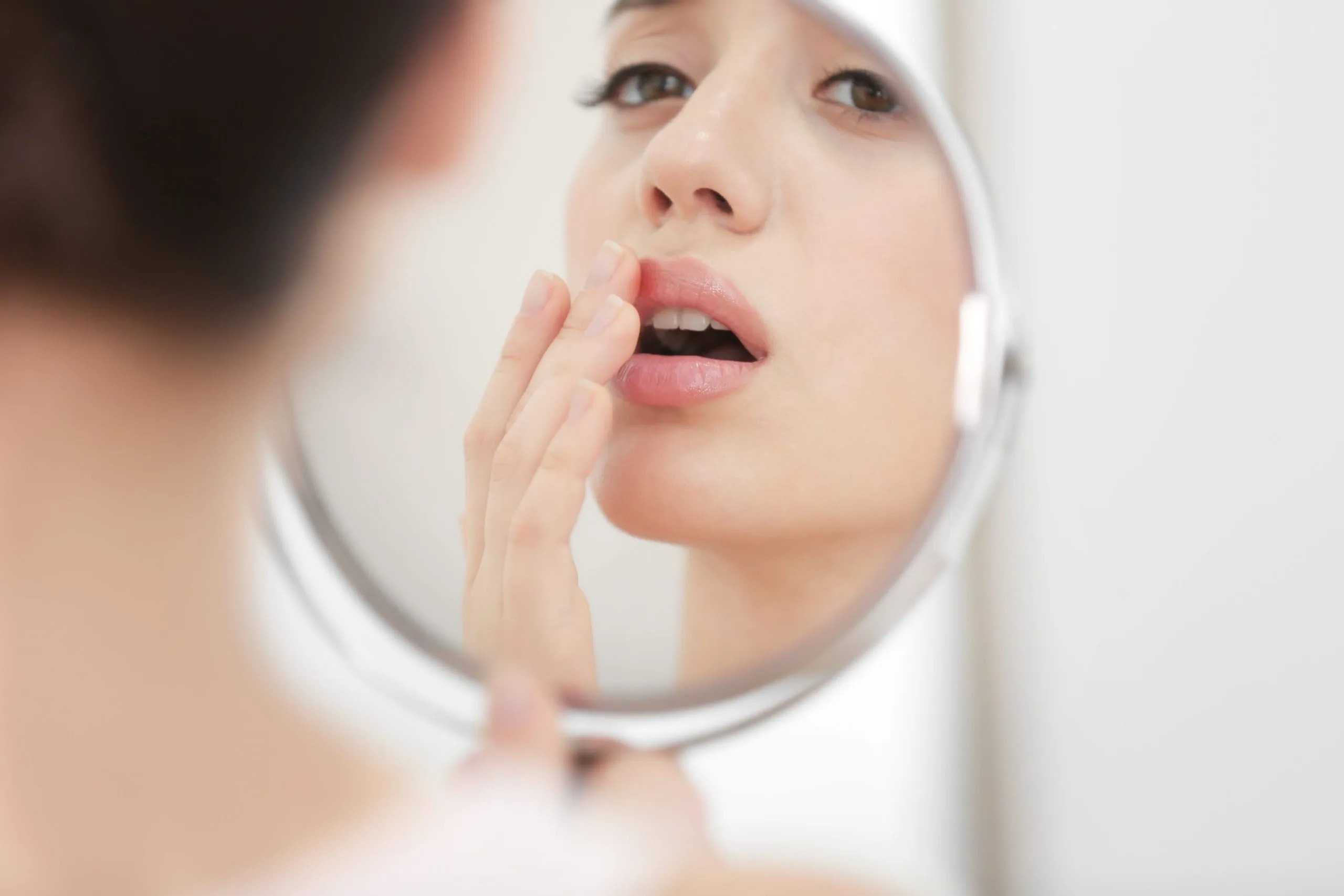
Cold sores are a viral infection that also goes by the name “fever blisters.” The second name might be more appropriate given that these sores manifest as blisters filled with fluid. They may appear on their own, but they more commonly appear grouped in patches on your face.
These sores can be annoying enough when they first appear, but it doesn’t take too long for the blisters to pop (with or without you scratching at them). This releases the fluid and causes scabs, but you can take some “cold” comfort from the fact that the sores usually heal on their own within three weeks and don’t leave any scars.
RELATED: 8 Strangest Causes of Adult Acne (and What to Do About Them)
What could my blemish be if it isn’t a cold sore?
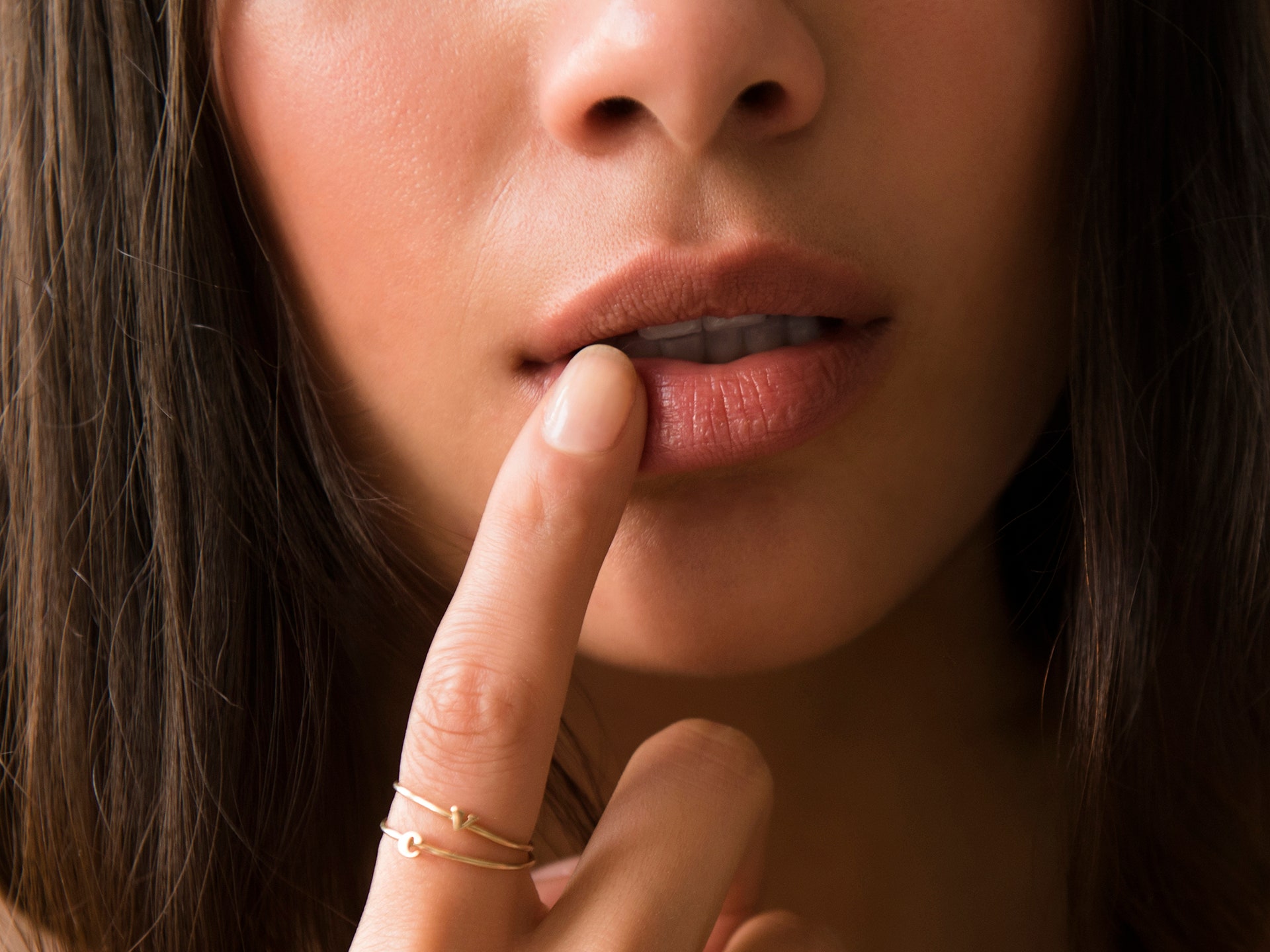
Now you know what cold sores are. But if your mouth blemishes aren’t actually cold sores, then what the heck could they be? The answer is, ironically, something of a mouthful: angular cheilitis. This is a condition that may start out a bit like cold sores, but there are some important differences.
For example, angular cheilitis typically includes your skin cracking, blistering, and even bleeding from the corners of your mouth. This never happens with cold sores, so if you’re experiencing one or more of these effects, then it’s clear that your own mouth blemish is most likely angular cheilitis instead of a cold sore.
What causes angular cheilitis?
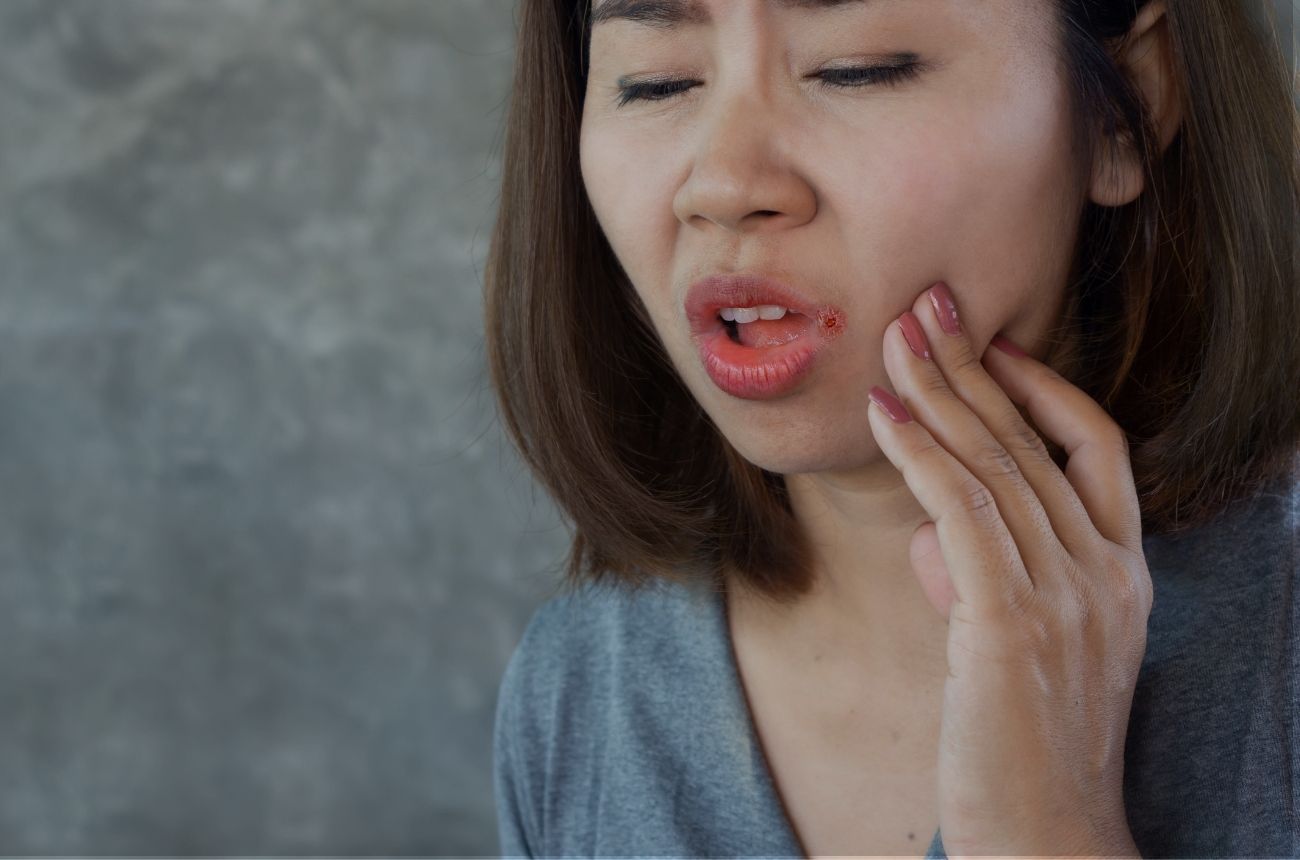
As we noted before, cold sores are actually caused by a virus, making them easy to pass from one person to another. Angular cheilitis, however, is not viral at all. Instead, it is simply caused when there is enough excess dryness in the area where your lips join together.
In addition to having very different causes, your body’s internal warning signals that you have angular cheilitis are different than the signals that you are suffering from cold sores. For example, the first sensation that usually warns a person they have cold sores is a kind of intense tingling sensation that manifests shortly before the appearance of the sores. By contrast, the first warning sensation that you have angular cheilitis is that you will feel a small irritation at the corners of your mouth that ends up getting more intensely painful over time.
RELATED: 8 Ways to Finally Get Rid of Painful Mosquito Bites
Who is likelier to develop angular cheilitis?
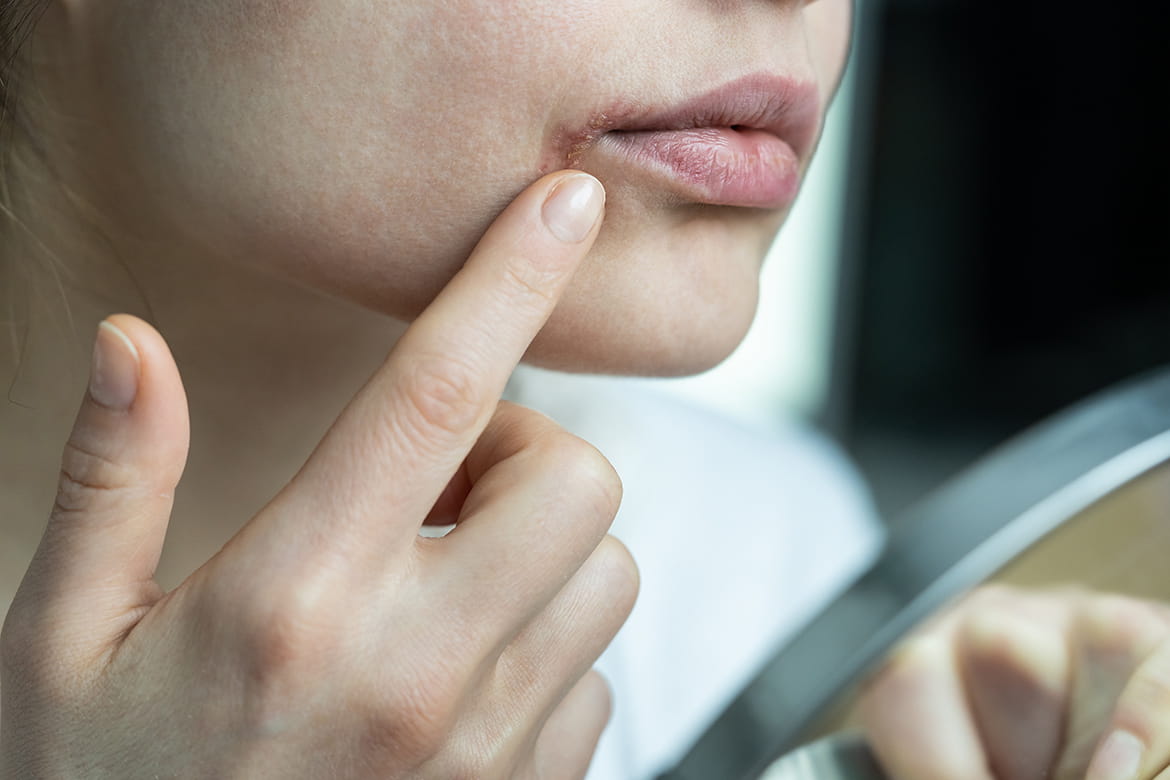
Like cold sores, it’s possible for everyone to develop angular cheilitis. However, some people are more likely to develop this condition than others. Who, then, should be particularly careful about this painful mouth malady?
Those with Down syndrome are likelier to get angular cheilitis, as are those who have very prominent lines around their mouths. Those who get dry lips or who have more sensitive skin are likelier to get angular cheilitis. In some cases, those with dentures or who rely on certain oral medications are likelier to develop the condition.
Finally, there are certain other habits that increase your risk. These habits range from smoking to having poor nutrition all the way to losing too much weight in too short a time!
Is angular cheilitis contagious?
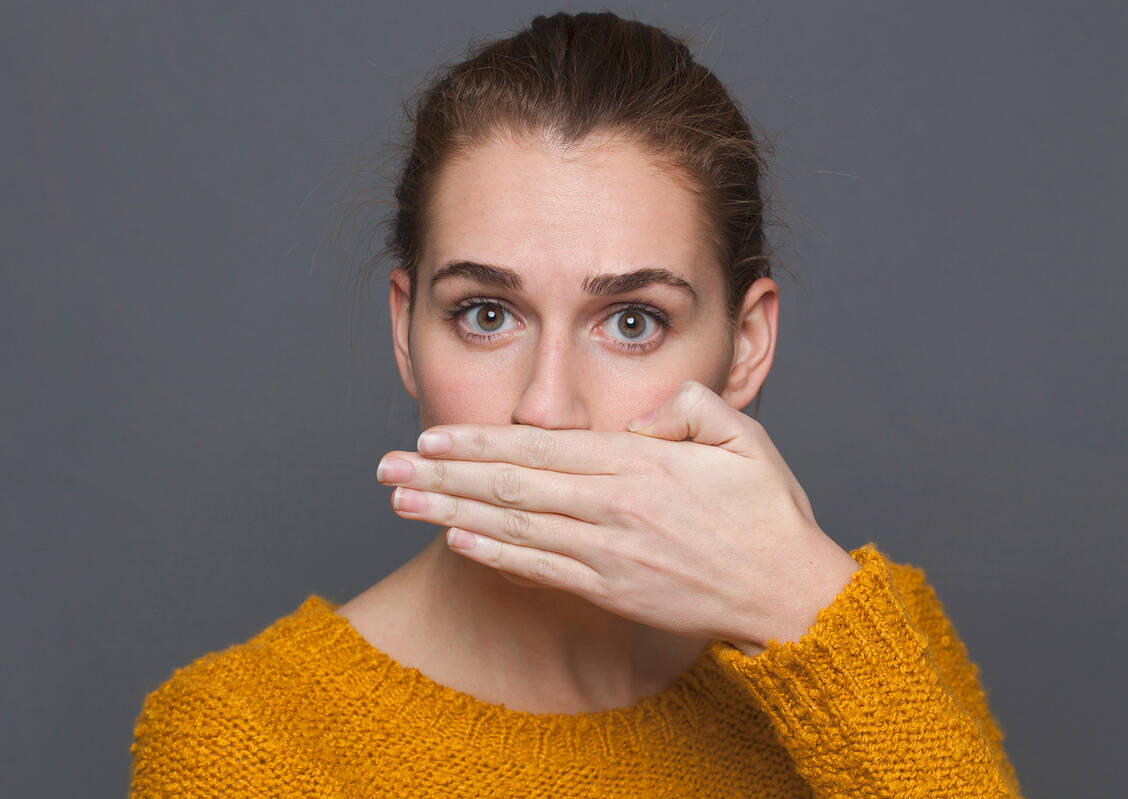
One of the reasons it’s embarrassing to get cold sores is that they are highly contagious. Accidentally kissing your partner, for example, could spread the viral infection to them. In some extreme cases, even the close proximity of something like a tightly packed elevator could lead to someone getting infected.
Compared to that, we’ve got some major good news when it comes to angular cheilitis: it’s not at all contagious. You have no chance of spreading it to other people, but if you want to keep it from happening to you (or happening to you again), then it’s important to know how to prevent and treat angular cheilitis.
RELATED: Small Clues On Your Body That May Signify MAJOR Health Problems
How can I treat angular cheilitis?
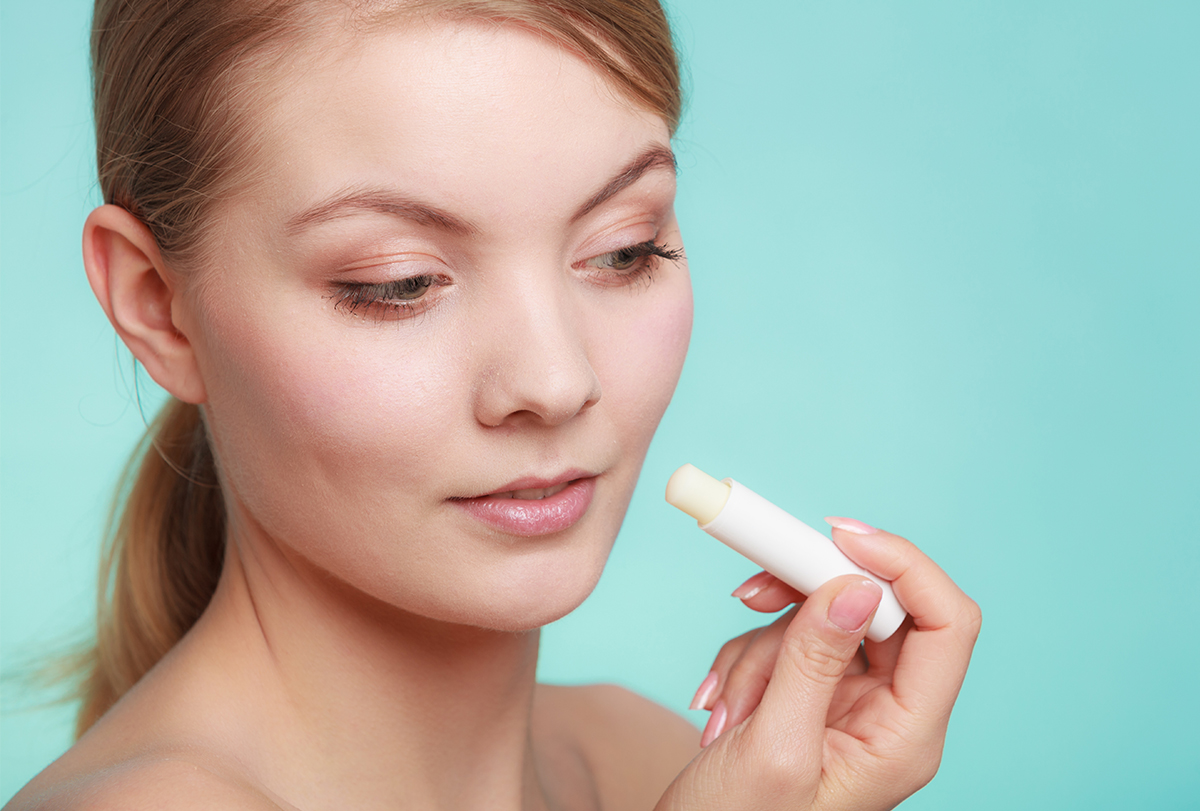
Obviously, the single best way to treat angular cheilitis is to ask your personal physician about potential treatment options. Your doctor will be able to definitively diagnose you, and if there are other factors in play (such as bacteria or fungus), he will be able to prescribe something that will take care of everything.
As for preventing angular cheilitis, it’s best to stay hydrated and to make sure your diet includes enough Vitamin B. For smokers, cutting back or quitting altogether can severely reduce your risks. Finally, avoid exfoliating your face too much…scrubbing too often and too intensely may cause a painful bout of angular cheilitis you will never forget!
